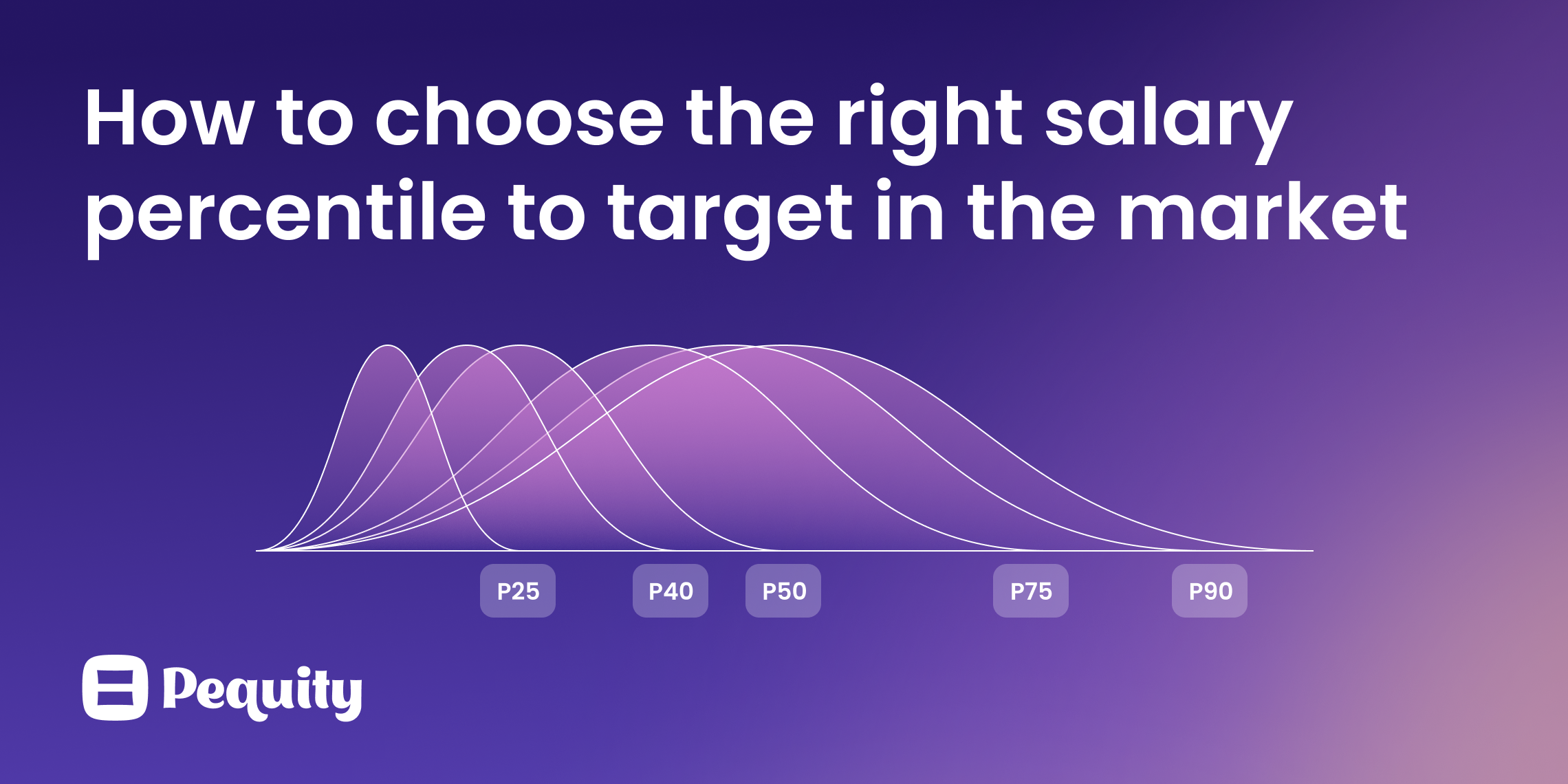When you build a compensation program, a question you’ll here is “what do you target your pay at in the market?”
This is a loaded question and should be carefully weighed. To help, below are some pieces of advice on choosing market salary percentiles. If you need help beyond this, always feel free to reach out to the team at Pequity to learn how our platform can help simplify your processes!
1. Know what it means to follow, meet and lead the market
When you pull your salary market data, you are comparing yourself to the companies in that salary survey. This means you will need to decide “are these companies I want to pay the same as?”
If the answer is yes, then that typically means you all be paying the 50th percentile or “at market.”
If you want to pay more than these companies, perhaps because your company is growing more aggressively or you’re in a talent war with them, you may choose to pay above the 50th percentile, such as at the 65th, 75th, or 90th percentiles. This is called “leading the market.”
Or, if you find these companies are at a very different talent stage that is well ahead of yours, and you do not have any issues hiring the level of talent you need, you may even choose to pay below the 50th, which is “following the market.”
2. Don’t feel that you have to target the same salary percentile for all roles
Different roles will have different problems to solve for. Typically there will be a handful of roles at your company that you need a high-quality bar for, which would make them very hard to poach in the market. This will not be true for all roles though.
For example, you may be hiring an office manager and a software engineer at the same time. An office manager will have less competition in most cases than a software engineer. Additionally, the quality of your software engineer may be critical for your success. In this world, you may pay the 50th percentile for the office manager and the 75th percentile for software engineers.
3. Consider targeting different percentiles for different compensation elements
When setting pay practices, different compensation vehicles will have different impacts on performance. Typically salary is money for work done today, bonuses are for work done yesterday, and equity is for work done tomorrow.
This means you should view them separately when setting percentiles as well. It’s not uncommon for tech startups to target lower cash and higher equity, because the bet is on the company’s future. Or you may decide that equity is not a huge part of your pay program, and therefore target a lower percentile overall.
4. Use your employee compensation data to guide you
None of the above should be done in a vacuum. If you say you pay the 50th percentile, when in actuality you pay the 25th, your employees will notice. Similarly, if you say you pay the 75th percentile and actually are paying the 50th, that is committing to a huge pay increase! So use your benchmarks, and compare each employee’s pay elements to the target percentile and see how far off you are.
If you do the above you’ll be well on your way to choosing the best salary percentile to target for your company.
Conclusion
Choosing the right salary percentile to target requires a thoughtful approach that takes into account your company’s specific circumstances, competitive landscape, and long-term goals. By carefully evaluating your options and leveraging data-driven insights, you can make informed decisions that support your overall compensation philosophy and help you attract, retain, and motivate top talent in the market. If you need further assistance, don’t hesitate to connect with Pequity to streamline your compensation processes and ensure you are optimizing your pay practices for success.
Ultimately, If you do the above you’ll be well on your way to choosing the best salary percentile to target for your company.
